
WHEN I STARTED my first vegetable garden more than 30 years ago, I puzzled over whether to direct sow my seeds in the soil or start them indoors on a windowsill. "Or maybe I should just buy a bunch of seedlings from a local garden center and plant those." So many options! I soon learned that I didn't need to pick just one planting technique.
In fact, vegetable gardeners generally use a combination of direct sowing and transplanting, with the planting method based on the individual crop and the length of the local growing season.
For example, tomatoes are typically transplanted because the growing season for most gardeners in North America isn't long enough for direct-sown plants to grow, flower and produce mature fruits. Spinach, on the other hand, is a quick green that doesn't transplant well and should be direct seeded outdoors. There are also crops, like broccoli and cucumbers, that can be direct sown or transplanted.
How do you decide which is best? When deciding how to plant seeds, the best place to start is the seed packet. Most companies include planting tips on the back of the envelope to make it easy for the gardener. You may also find recommendations on timing, spacing and planting depth.
Seed packets and seed catalogs also list "days to maturity," the time it takes for a plant to go from seed to harvest. To ensure success you need to grow crops whose days to maturity fit the length of your growing season.
Below I offer the benefits, drawbacks and my pro tips for direct sowing and transplanting to help you grow your best garden ever!
DIRECT SOWING
Direct sowing is simply planting seeds outdoors in garden beds or containers. It's an economical way to plant a vegetable garden. It also takes less time, indoor space and hands-on work than starting seeds indoors.
This story is from the March - April 2024 edition of Horticulture.
Start your 7-day Magzter GOLD free trial to access thousands of curated premium stories, and 9,000+ magazines and newspapers.
Already a subscriber ? Sign In
This story is from the March - April 2024 edition of Horticulture.
Start your 7-day Magzter GOLD free trial to access thousands of curated premium stories, and 9,000+ magazines and newspapers.
Already a subscriber? Sign In

Pot It Up
Shake up the containergarden with theseNorth America –native perennials

THE GARDEN PATH TO PERDITION
I WAS CRUISING RIGHT ALONG, feeling okay about myself, when I came across a list of the Seven Deadly Sins.
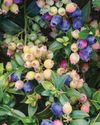
A Productive PATIO
Tiny fruit, vegetable and herb plants help gardeners maximize any sort of growing space
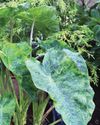
TROPICAL FUSION
A FUSS-FREE APPROACH TO USING BOLD TROPICAL PLANTS IN ANY TEMPERATE GARDEN

WINTER READING
Pass the time with any of these inspiring books
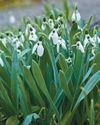
SENSING A PATTERN
Greg Coppa reflects on an odd weather year and what continued warming may mean for his Rhode Island garden
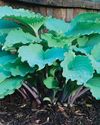
TOP-PRIZE PERENNIALS
A foliage masterpiece for shade and a late bloomer for sun

MARK WESSEL
What's new for fruit and vegetable gardeners?
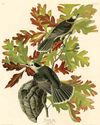
KINGS OF THE NORTHERN FORESTS
A look at the trees, shrubs and perennial plants that bolster life in Ecoregion 5

PROJECT FEEDERWATCH
Gardeners can help scientists know just where the birds are in winter